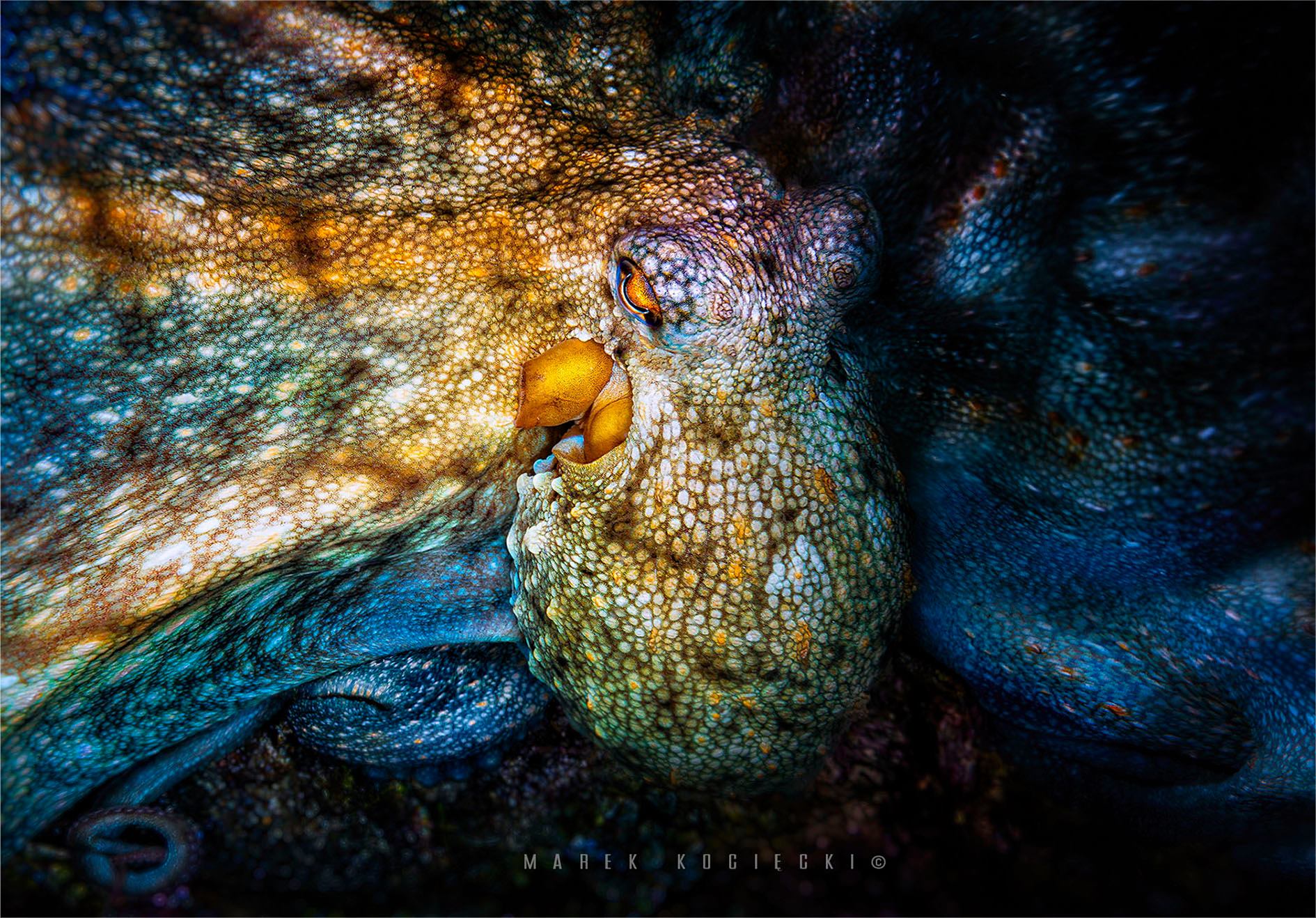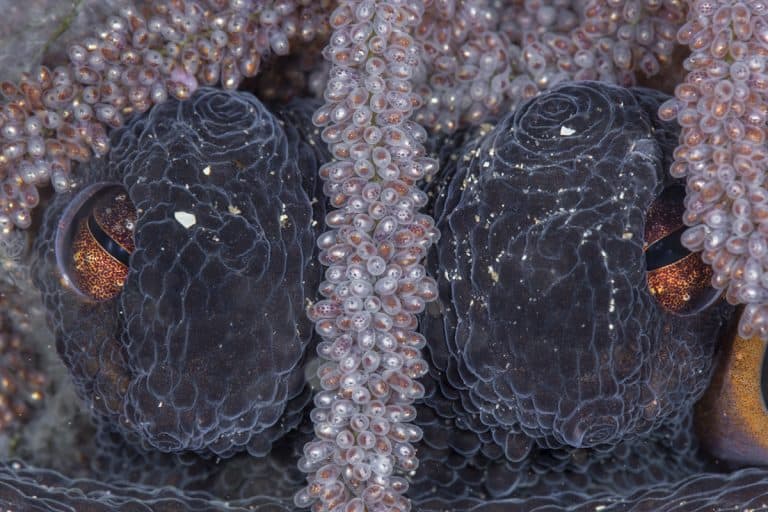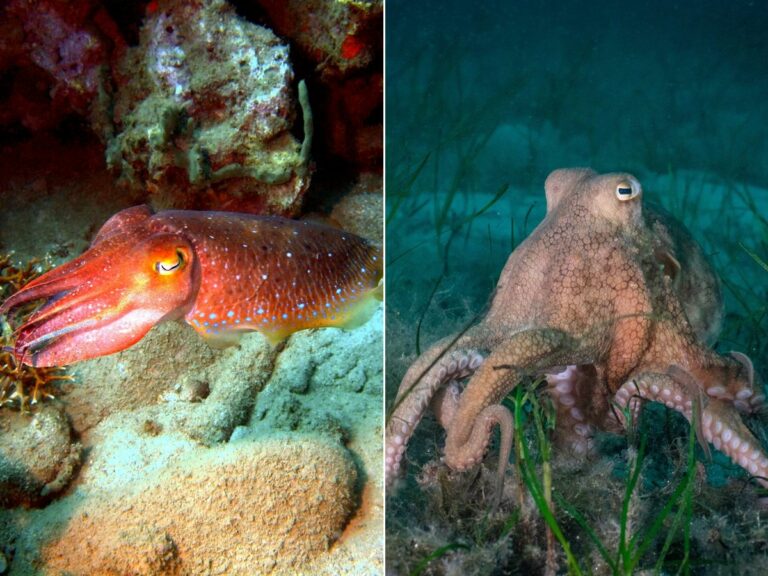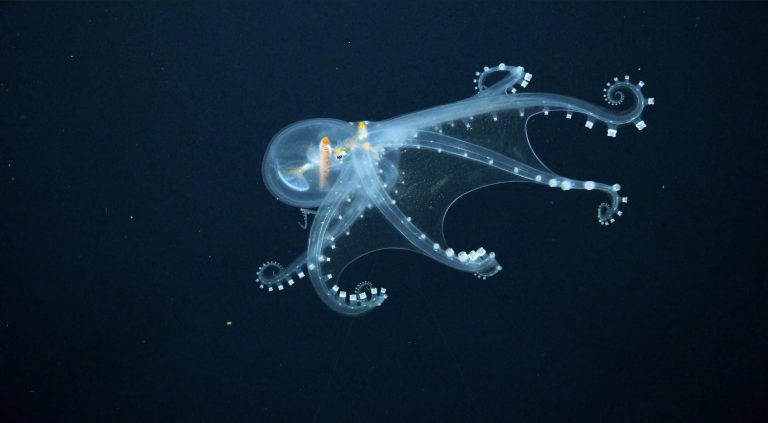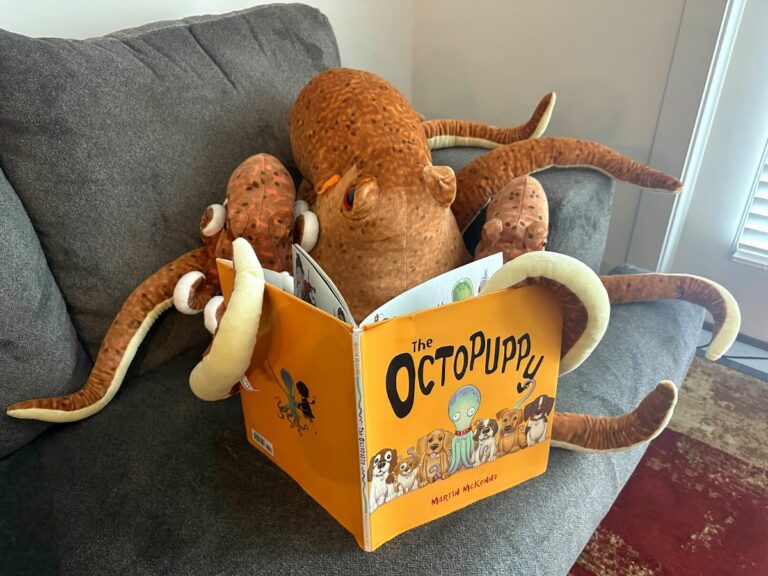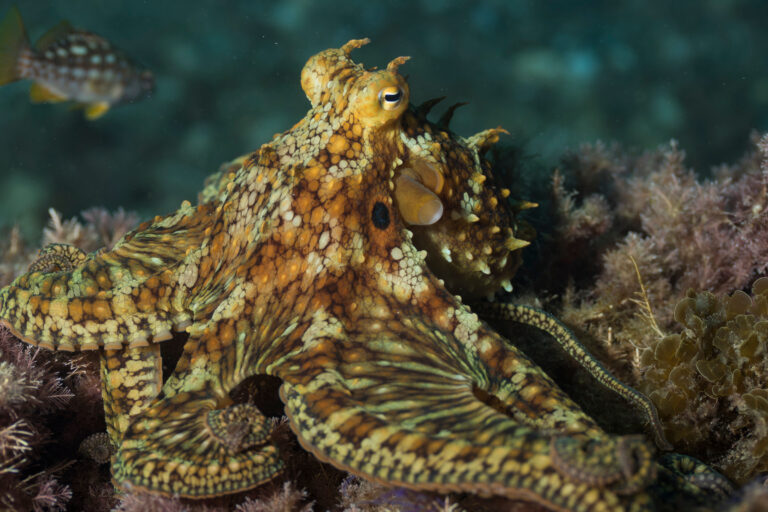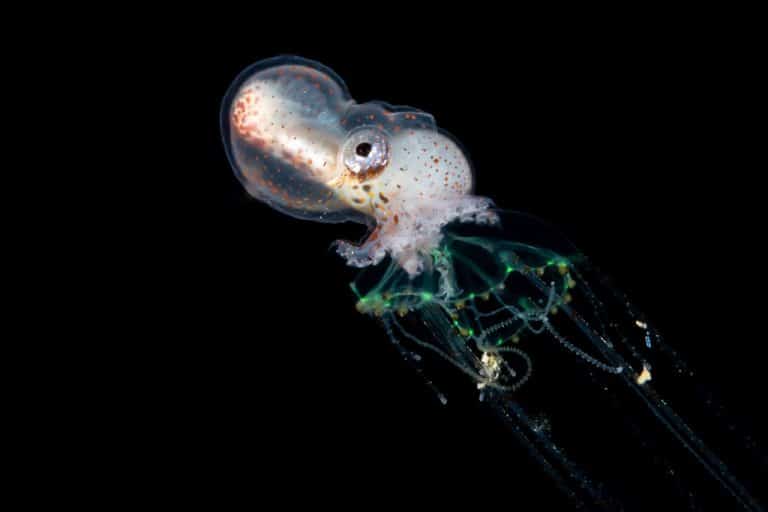A Dreaming Octopus? Let’s Look At Cephalopod Sleep Cycles!
Who doesn’t love to sleep!? Those glorious hours each day where we get to drift off into a state of calm, rest, and dreams. Do octopuses get to experience the same luxury? Do they find a cozy nook in their den, wrap themselves in their arms, and catch some sweet zzz’s? The answer is YES! And they don’t just sleep. They experience sleep cycles like humans do leading scientists to speculate that there is such a thing as a dreaming octopus!
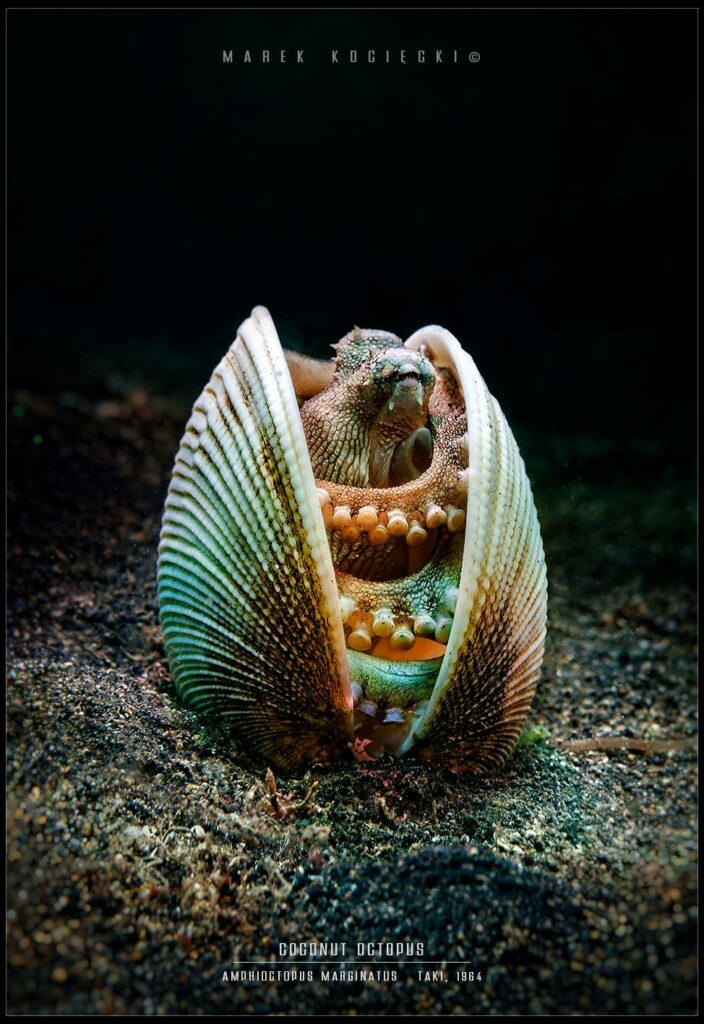
There have been several laboratory studies of the rest-activity cycles in octopuses; however, a study in 2006 (Brown, E. R., Piscopo, S., De Stefano, R. & Giuditta, A.) identified four distinct behaviors:
- Active
- Alert
- Quiet
- Eyes Closed
They observed intensified brain activity when octopuses were in a sleep-like state, similar to vertebrates. This also set the stage for future work in cephalopod sleep science!
The sleep states of cephalopods are a relatively new area of sleep science. I mean it’s not easy sticking electrodes onto a soft body that can swim away from you.
Does an octopus have different sleep states?
A study out of Brazil led by Silvia Medeiros looked at the sleeping habits of the Brazil Reef Octopus (Octopus insularis) that found octopuses have 2 sleep states:
- Quiet sleep
- Active sleep
Do they look different when they are sleeping?
An octopus is pale whiteish-gray all over during quiet sleep with eyes tightly shut and hardly moving. On average, this phase seems to last between 30-40 minutes!
What happens to the octopus during active sleep?
Active sleep is much shorter, lasting less than a minute, and is when the octopus puts on a sleepy show for anyone watching.
During this short burst, the octopus will flash an array of colors across their bodies, sometimes with dramatic flair like turning the left side of their body deep burgundy while keeping the right side pale!
In addition to color change:
- Their skin texture changes
- They twitch their arms while their suckers contract
- They have rapid eye movement
Scientists use the criteria originally developed to study sleepy mammals: behavioral observations.
What do they look for while watching an octopus siesta?
Pretty much everything you would for a human!
- Responsiveness
- Movement
- Twitching
- Regulated and slower breathing
- Closed eyes
- And, how long they maintain a certain state
The bonus of watching octopus sleep? Scientists also get to look at their skin color and texture changes on their skin!
How long do octopuses sleep per day?
Over the course of 12 hours, an octopus only sleeps, on average, a total of around 2 hrs intermittently! Roughly 5 minutes out of these 2 hours is their active sleep (like our REM cycle) with the majority being quiet sleep.
That means an octopus spends less than 1% of its time in the active sleep state. They stare at a blank wall for 30 minutes, get shown a quick 40 second TikTok video, and then go back to the blank wall to repeat the cycle!
🐙 Octopus Fun Fact
The vibrant color changes during sleep have been observed in the Common Cuttlefish (Sepia officinalis); however, these studies didn’t check to make sure they were truly asleep or just in an overall chill state of being (in which case the color change could be in response to stimuli).
In Silvia Medeiros’s study, to make sure the octopuses were fast asleep, she would release crabs into the tank or gently tap on the outside to see if they would get any kind of reaction. Knowing how much ruckus it would take to rouse an octopus allowed them to know when they were 100% asleep.
Do they have a similar REM cycle as humans do?
An octopus’s active sleep phase is similar to our rapid eye movement (REM) phase!
Humans have quiet (non-REM) and active (REM) phases of sleep that we cycle through 3 to 4 times each night. Unlike the quick TikTok’s that octopus experience, we get full-length feature films that last 1.5 to 2 hours.
During our REM cycle, we experience rapid eye movement, increased heart rate, irregular breathing, and it’s when we dream. It’s amazing to know that cephalopods experience this too!
Especially when you consider that humans and octopuses split 550 million years ago along the evolutionary line but somehow managed to evolve similar sleeping patterns!
How wild is that!?
🐙 Octopus Fun Fact
This type of phenomenon is known as convergent evolution where animals evolve similar traits to pressures in their surroundings. Like how wings evolved on bugs, bats, and birds separately, but have the same purpose!
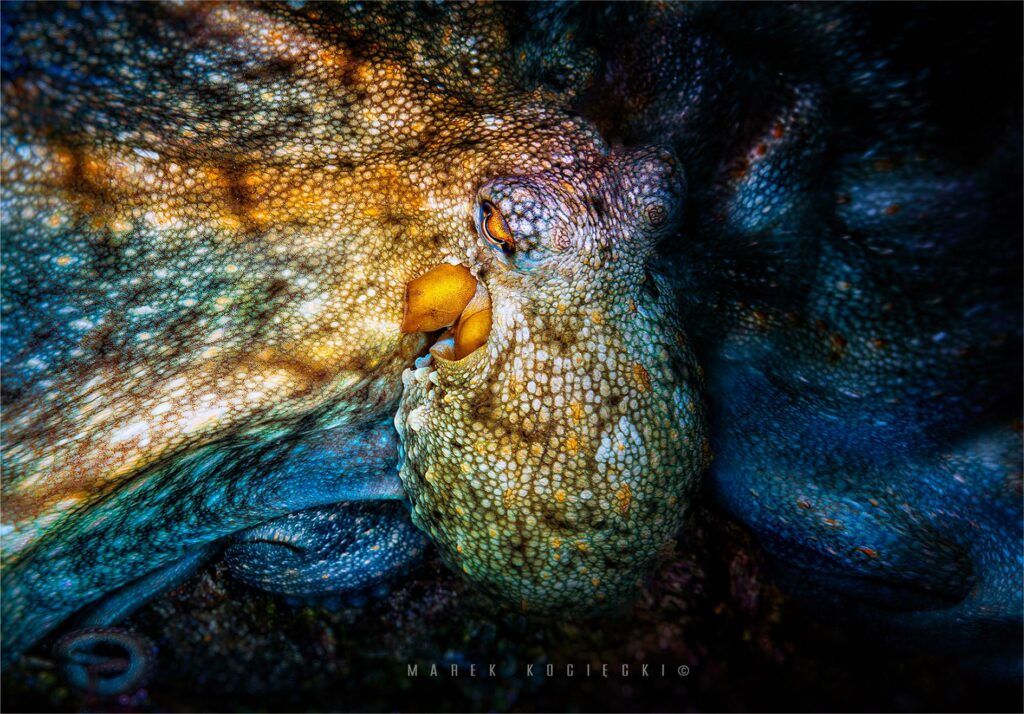
So… do octopuses dream?
By now, it’s old news that octopuses are smart.
They can:
- Problem solve
- Use tools
- Plan and execute crafty aquarium escapes
- And, have a brain-to-body ratio similar to mammals.
It’s not too far-fetched to think octopuses may spend some of their sleep time dreaming of chasing crabs and snacking on shrimp.
REM is thought to be a time when connections are made within the brain, getting rid of useless information while retaining helpful memories. It’s a time when short-term memories get converted into long-term memories.
Is this when an octopus retains which rock crevices always seem to have a juicy crab meal waiting there? Or could it be when the satellite brains in their arms download their daily information to the main brain?
While it’s fun to imagine what a cephalopod could possibly dream about in 40 seconds, let’s not forget that chromatophores (pigmented cells) are attached to muscles and activated by neurons, resulting in these fast color changes that are most likely just a cooler version of twitching.
Basically, it’s the same as us unconsciously moving our fingers while we sleep!
Considering we still have a lot of unanswered questions about how and why humans dream, we can only speculate that cephalopods might be dreaming.
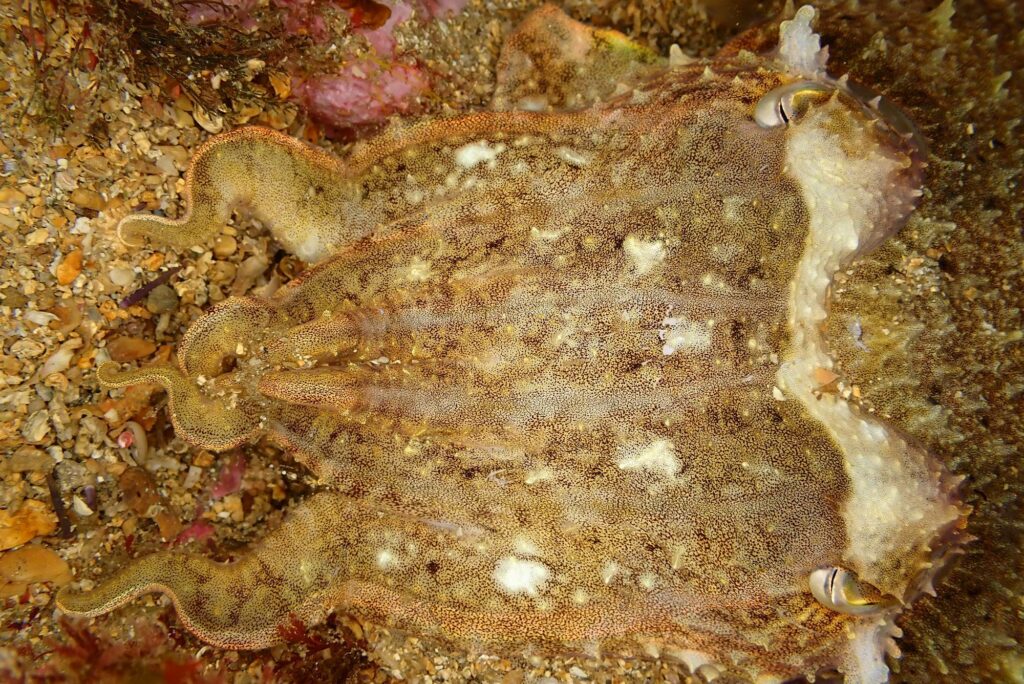
Is there such a thing as a dreaming octopus?
There are so many lingering questions when it comes to the sleep science of cephalopods! Can they not perform complicated behaviors when sleep-deprived? Does sleep help them learn and remember new tasks?
Sadly, we will probably never be able to ask an octopus what their dreams are about, so we will have to settle for seeing it flashed across their skin!
New life goal: become a dreaming octopus interpreter!
If you want to educate yourself some more about all sorts of different cephalopods, take a look at our encyclopedia. Or, what we call it, our Octopedia!
Connect with other octopus lovers via the OctoNation Facebook group, OctopusFanClub.com! Make sure to follow us on Facebook and Instagram to keep up to date with the conservation, education, and ongoing research of cephalopods.
More Posts To Read:
- Do Octopus Bite?
- Does Octlantis Exist?
- “How The Octopus Lost Its Shell” (Octopus Comic)
- What’s The Difference Between Cuttlefish vs. Octopus?
- Breaking News – There are now THREE new species of Nautilus!
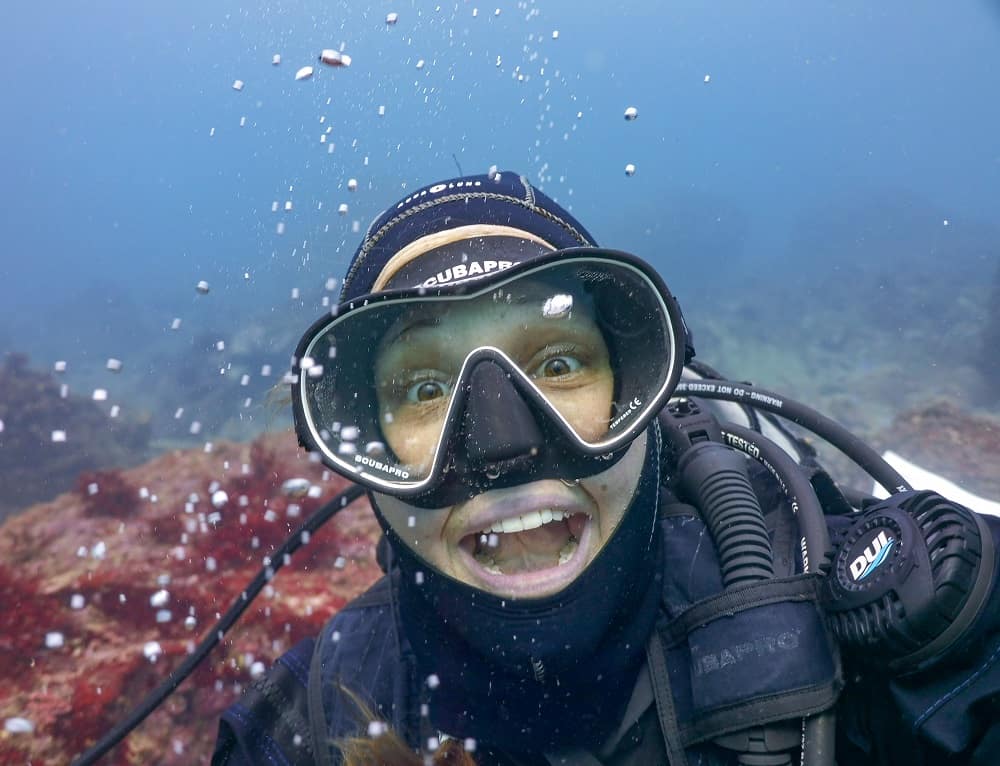
Corinne is a biologist with 10 years of experience in the fields of marine and wildlife biology. She has a Master’s degree in marine science from the University of Auckland and throughout her career has worked on multiple international marine conservation projects as an environmental consultant. She is an avid scuba diver, underwater photographer, and loves to share random facts about sea creatures with anyone who will listen. Based in Japan, Corinne currently works in medical research and scientific freelance writing!
